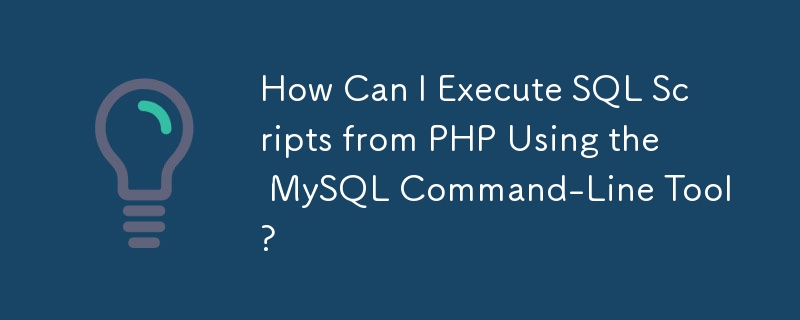

Embedding SQL Scripts in PHP: A Detailed Guide
Introduction
Executing SQL scripts directly from PHP presents a challenge due to limitations and edge cases encountered with direct execution. Therefore, employing an external tool, such as MySQL's CLI tool, becomes necessary.
Executing *.sql Files with shell_exec()
To run *.sql files in PHP, the following approach using shell_exec() is recommended:
$command = 'mysql'
. ' --host=' . $vals['db_host']
. ' --user=' . $vals['db_user']
. ' --password=' . $vals['db_pass']
. ' --database=' . $vals['db_name']
. ' --execute="SOURCE ' . $script_path
;
$output1 = shell_exec($command . '/site_db.sql"');
$output2 = shell_exec($command . '/site_structure.sql"');Additional Considerations
It's worth noting that the --option=value format is more robust for specifying MySQL CLI options. Furthermore, --execute="SOURCE ..." can be used to specify file execution.
Differences between shell_exec() and exec()
While both shell_exec() and exec() allow execution of external commands, shell_exec() ensures that the entire script is executed, capturing its output. Exec(), on the other hand, only returns the last line of output.
Related Questions and Resources
Consult these related Stack Overflow questions for additional insights:
The above is the detailed content of How Can I Execute SQL Scripts from PHP Using the MySQL Command-Line Tool?. For more information, please follow other related articles on the PHP Chinese website!




